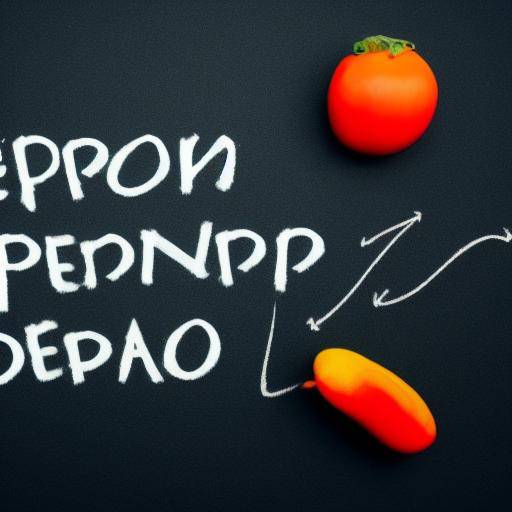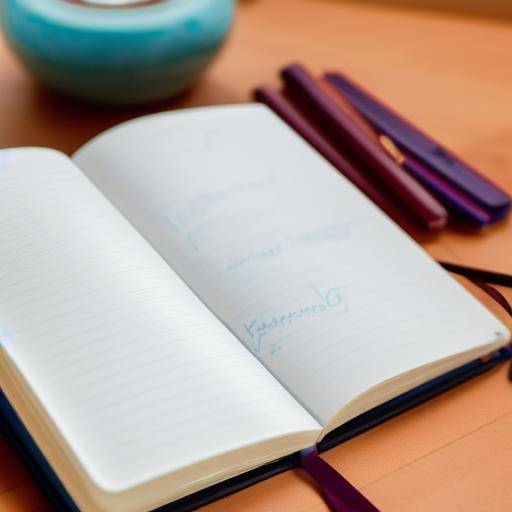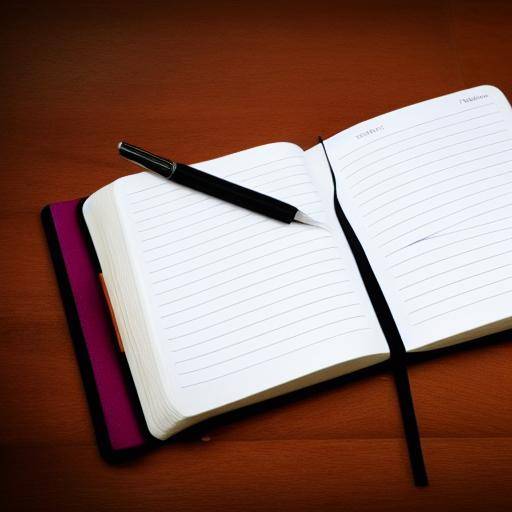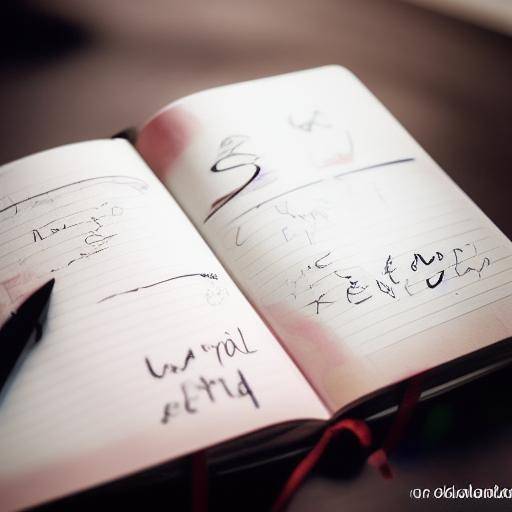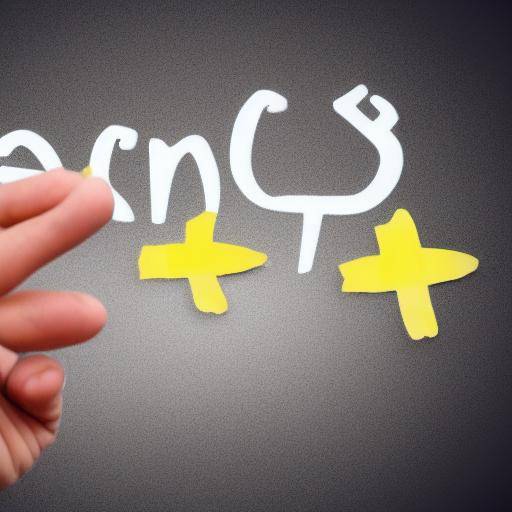
Emotional management is a crucial skill for mental well-being. Many people struggle to understand and control their emotions, which can affect their mental health and quality of life. However, there is a simple and effective tool that can help in this process: the personal journal. In this article, we will explore how to use a journal to manage emotions and feelings, understanding their importance, benefits and practical techniques.
Introduction
Emotional management, or the ability to recognize, understand and manage emotions, is essential to maintain a healthy mental state. With stress and anxiety increasingly present in modern life, emotional management has become a subject of great relevance. Fortunately, the use of a personal journal can be an effective tool to address those emotional challenges.
In the following sections, we will explore the use of the personal journal as a tool to manage emotions and feelings. From its history and evolution to best practices and examples of application in everyday life, this article will provide a profound and practical insight into this relevant topic.
History and Background
The practice of carrying a personal journal has a long history dating back centuries. From ancient philosophers to contemporary writers and leaders, the act of portraying thoughts and emotions on paper has been a form of self-reflection and self-knowledge.
Origins and Evolution
Diaristic writing has its roots in ancient civilizations such as the Egyptians and the Greeks, who valued the act of documenting thoughts and events. However, its popularity grew during the Renaissance, when figures such as Leonardo da Vinci and Michel de Montaigne advocated personal writing as a way of examining one's own mind. This interest continued throughout the centuries, influencing modern philosophy and psychology.
Importance in Emotional Management
The personal journal has become an important tool for emotional management due to its ability to organize chaotic thoughts, examine emotional behavior patterns and provide mental clarity. In a world characterized by informative saturation and constant stimulation, the journal offers a private space for self-reflection and emotional self-control.
Analysis in Deep
Personal Journal Benefits for Emotional Management
Diaristic writing can offer a number of significant benefits in terms of emotional management. These include:
- Self-knowledge: By regularly recording thoughts and feelings, people can develop a deeper understanding of themselves, their emotional reactions and their behavioral patterns.
- Mental Clarity: Written expression allows people to clear their minds, which can reduce anxiety, stress and emotional confusion.
- Troubleshooting: Faced with emotional challenges, putting them on paper can help find alternative solutions and perspectives.
- Self-criticism and self-care: The personal journal allows an objective assessment of emotions, which favors the development of strategies for emotional self-care.
- Stress management: Writing in a journal can act as an emotional release mechanism, reducing tension and accumulated emotional distress.
Challenges and Solutions in the Use of a Personal Journal
Despite the obvious benefits, the use of a personal journal to manage emotions can present challenges. Some people may feel initial resistance by revealing their emotions on paper or may have difficulties in maintaining practice consistently.
Overcoming these challenges usually involves tackling self-criticism and perfectionism, establishing a proper time and space for writing, and learning to trust the journal process as an effective tool for emotional management.
Comprehensive review
Practical Applications
The use of a personal journal for emotional management extends to multiple areas of life, including:
- Resolution of interpersonal conflicts
- Overcoming emotional trauma
- Work and personal stress control
- Emotional Intelligence Development
- Improved self-esteem and self-acceptance
Best Effective Practices and Techniques
Some effective techniques for the use of the personal journal in emotional management include:
- Practice free writing, without censorship or self-censorship.
- Establish a daily ritual to write in the journal, promoting consistency.
- Use specific writing exercises to explore emotions, such as gratitude, forgiveness and positive visualization.
- Reread and reflect on previous entries to identify patterns and emotional evolutions.
Perspectives and Diverse Reviews
The effectiveness of the personal journal in emotional management has been discussed and studied. While some experts promote it as a vital tool, others raise the need to complement it with additional therapies or alternative approaches. This debate enriches the understanding of how to use the journal effectively for emotional management, providing a balanced view of its applications and limitations.
Comparative analysis
Emotional management, personal journal and mental well-being are closely related, as they influence and feed each other. Understanding the differences, similarities and synergies between these concepts is essential for effective and sustainable emotional management.
Although emotional management is a broad concept that encompasses practices such as meditation, cognitive-behavioral therapy and emotional self-care, the personal journal stands out for its individual and holistic approach to emotional self-examination. Therefore, it can be considered as a complementary tool for fostering mental well-being.
Practical Tips and Accessible Tips
Working with a personal journal for emotional management can be a personal and unique process for each individual. However, some practical tips can guide beginners and offer new perspectives to those who already have experience in using a journal for emotional management:
- Set a quiet and relaxing space to write in the journal, encouraging concentration and introspection.
- Experiment with different writing styles, such as narrative, poetry or reflective analysis, to find the most effective way to express and process emotions.
- Being patient and compassionate with yourself, recognizing that emotional management is a continuous process that requires time and effort.
- Find inspiration in literary works, philosophical reflections or creative exercises to enrich the diaristic practice.
Conclusions
The personal journal offers a unique opportunity for emotional management that can bring clarity, self-knowledge and well-being. By addressing emotions on a regular and reflective basis, people can develop greater resilience, empathy and emotional balance. The simple practice of writing in a journal can lead to significant changes in mental health and well-being.
FAQs
Why is emotional management important?
Emotional management is critical to mitigating stress, increasing emotional resilience and improving interpersonal relationships. It allows people to understand and regulate their emotions effectively, which contributes to greater emotional stability and mental well-being.
What are some practical exercises for emotional management?
In addition to the personal journal, some effective techniques for emotional management include meditation, creative visualization, the practice of gratitude and conscious breathing.
Can the personal journal replace psychological therapy?
While the personal journal can be a valuable tool for emotional management, it does not replace professional therapeutic support in situations of emotional trauma or severe psychological disorders. However, it can complement and enrich the therapeutic process by offering an additional space for self-exploration and self-support.
How often should I write in my personal journal?
The writing frequency in the personal journal is personal and varies according to individual preferences. Some people find benefits in writing daily, while others do it weekly or at times of greater emotional need. The most important thing is to find a rhythm that adapts to the needs and lifestyle of each person.
Can I use digital media to carry a personal journal?
Yes, there are numerous digital applications and platforms that allow a personal journal to be carried safely and privately. Digital writing can offer comfort and easy access, although some people prefer the touch and analog experience of writing in a traditional notebook.
What should I do if I feel blocked when writing in my personal journal?
Experiencing emotional or writing blockages is common when carrying a personal journal. In such cases, it is useful to seek inspiration in nature, art, music or meaningful conversations. You can also consider changing the writing environment or exploring different themes and emotions.
Is the personal journal only for adults, or can it be beneficial for adolescents and children?
The use of the personal journal can be beneficial for people of all ages. Children and adolescents can find in diaristic writing an effective method to explore and express their emotions, as well as to develop skills of self-knowledge and emotional self-management from an early age.
Conclusion
Using a personal journal for emotional management is a powerful tool that offers significant benefits in mental and emotional well-being. By documenting and reflecting on experiences, thoughts and emotions, people can develop greater mental clarity, self-knowledge and emotional resilience. Through continued practice, the personal journal can become an invaluable ally on the path to effective emotional management and greater emotional balance.
In short, the personal journal is not only a tool for writing, but also a means for self-knowledge and emotional management. With commitment and practice, the personal journal can become an emotional shelter and a valuable source of personal clarity and growth.
Share this article with those who seek to develop their emotional management skills and discover the transformative power of diarrhea writing!






































